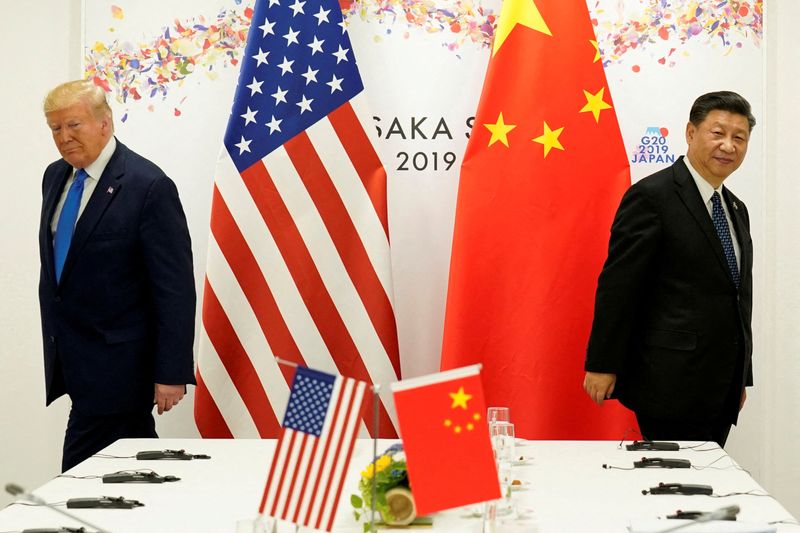By Michael Martina
WASHINGTON (Reuters) -U.S. lawmakers introduced a bipartisan bill on Thursday that would revoke China's preferential trade status with the United States, phase in steep tariffs and end the "de minimis" exemption for low-value Chinese imports.
The bill, introduced by John Moolenaar, the Republican chair of the House of Representatives' select committee on China, comes after President Donald Trump issued a memo on Monday asking his cabinet to assess legislation on the Permanent Normal Trade Relations designation for Beijing.
Congress approved PNTR for China in 2000, paving the way for its entry into the World Trade Organization. But the U.S. has routinely found the large role of the state in China's economy, including hefty government subsidies for strategic industries, to violate the global trade body's rules.
Trump, who has railed against China's vast trade surplus with the U.S., has vowed more duties on Chinese goods.
Moolenaar's Restoring Trade Fairness Act was co-sponsored by Democratic Representative Tom Suozzi and introduced with a companion bill in the Senate. Moolenaar said granting China PNTR had ushered in waves of Chinese imports, depleted U.S. manufacturing and made the U.S. susceptible to economic coercion from its "foremost adversary."
"This gamble failed," Moolenaar said in a statement. "This legislation will safeguard U.S. national security, enhance supply chain resilience, and bring manufacturing jobs back to America and our allies."
China's embassy in Washington said any such move would harm both Chinese and U.S. interests.
"Some U.S. politicians are trying to reverse history and drag Sino-U.S. economic and trade relations back to the Cold War era," embassy spokesperson Liu Pengyu said.
The path for the bill to become law was not immediately clear, but Republicans hold majorities in both the House and Senate. Lawmakers from both parties say they want to increase U.S. companies' ability to compete with China.
Waves of U.S. tariffs by Trump in his first term and by the Biden administration had effectively ended PNTR treatment for China.
Nonetheless, the proposed legislation would end annual recertification of the designation, and codify minimum 35% tariffs for non-strategic goods and minimum 100% tariffs for strategic goods. The duties would be phased in over five years - 10% in the first year, 25% in the second year, 50% in year four and 100% by year five.
The bill would also end de minimis treatment for certain "covered nations," including China.

Trump has called for changes to the $800 de minimis duty-free exemption for low-value shipments often blamed for illicit imports of fentanyl precursor chemicals from China.
Critics of de minimis say it contributes to the United States' trade deficit with China - $279 billion in 2023, according to the U.S. Census Bureau.